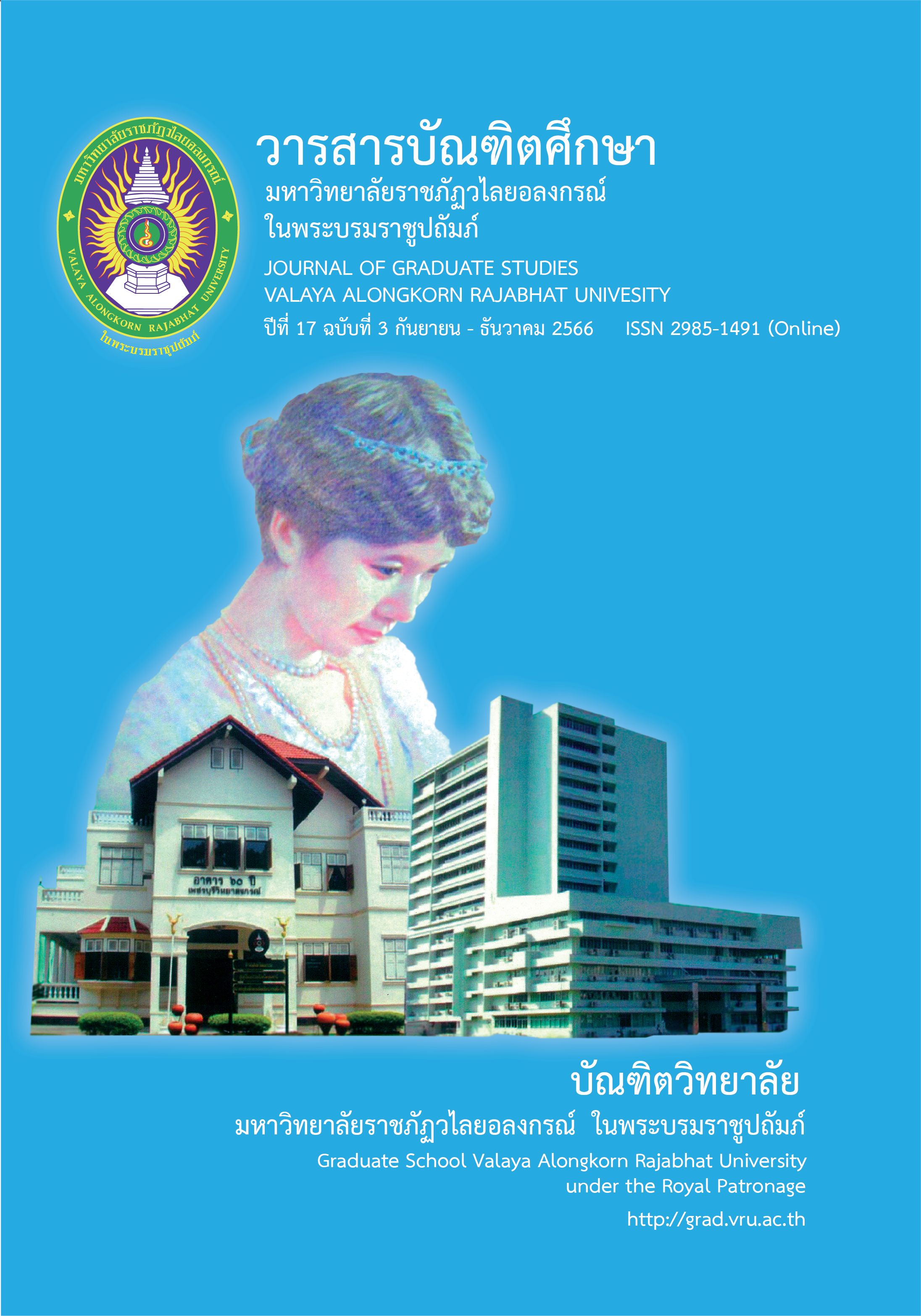COMMUNITY ADAPTATION IN THE SITUATION OF COVID-19 PANDEMIC
Main Article Content
Abstract
This article aimed to point out how communities adapted to COVID-19 pandemic by studying the concept of adaptation theory. The study found that the communities adapted themselves to survive the COVID-19 pandemic crisis. The important factors were: 1) Leadership factor which leaders successfully communicated accurate information to community members and coordinated with relevant departments outside the community to get help. 2) Community member factor which the members of community had unity and collaboration to solve problems with a profound relationship system and cordial support. And 3) community administration factor which the community administration was precise with proper and clear duty breakdown structure, internal community management plan, implementation and assessments. In addition, the community was a self-reliant community both during normal times and during various crises. The community members had good conscience towards the community with civil consciousness and attitude regarding the problems of the community and had intention to join the responsibility and solve the problems together.
Article Details

This work is licensed under a Creative Commons Attribution-NonCommercial-NoDerivatives 4.0 International License.
บทความทุกเรื่องได้รับการตรวจความถูกต้องทางวิชาการโดยผู้ทรงคุณวุฒิ ทรรศนะและข้อคิดเห็นในบทความ Journal of Global of Perspectives in Humanities and Social Sciences (J-GPHSS) มิใช่เป็นทรรศนะและความคิดของผู้จัดทำจึงมิใช่ความรับผิดชอบของบัณฑิตวิทยาลัย มหาวิทยาลัยราชภัฏวไลยอลงกรณ์ ในพระบรมราชูปถัมภ์ กองบรรณาธิการไม่สงวนสิทธิ์การคัดลอก แต่ให้อ้างอิงแหล่งที่มา
References
Bernard, H. W. (1960). Mental health for classroom. New York: McGraw-Hill.
Charurat, S. (1989). Kānpraptūalæsukphāpčhit: Čhitwitthayābư̄angton [Adaptation and Mental Health: Psychology]. Bangkok: Khon Kaen University Printing House.
Coleman, J. S. (1981). Cognitive outcomes in public and private schools. Sociology of Education. 55(31), 65-76.
Coronavirus Disease 2019 Epidemic Administrative Center. (2020). lakkēn læ nǣo patibat nai kān khat krō̜ng kāndœ̄nthāng ʻō̜k nō̜k khēt khūapkhum sūngsut læ khēmngūat samrap khēt khūapkhum sūngsut læ khēmngūat hā čhangwat daikǣ Samut Sākhō̜n Chon Burī Rayō̜ng Čhanthaburī Trāt [Criteria and guidelines for screening travel outside the highest and strict control area for the highest and strict control area 5 provinces, consisting of Samut Sakhon, Chonburi, Rayong, Chanthaburi, Trat] Retrieved from http://www.moicovid.com
Department of Disease Control. (2021). Coronavirus Disease 2019: COVID-19. Retrieved from https://ddc.moph.go.th/viralpneumonia/measure.php
Hutangkool, L. (1992). Lakphư̄nthānphư̄akānphayābān Chīwa-čhit-sangkhom [Principles implied to biopsychosocial nursing]. Bangkok: Rangsit University Printing House.
Kanthanon, S., Siemmai, A., Nakaro, A., Thumsri, K. & Chansa, W. (2021). kān prap tūa khō̜ng chumchon rap khwām pakati mai čhāk kān rabāt khō̜ng rōk titchư̄a wairat khō ranā sō̜ngphansipkāo nai čhangwat Krabī [The community adaptation of new normal of the COVID-19 Outbreak in Krabi Province]. In kān prachum radap chāt mahāwitthayālai rātchaphat phū ket khrang thī sipsām būn nā kān saha sākhā wichā phư̄a kānphatthanā thō̜ngthin [National Conference 13th Phuket Rajabhat University “Multidisciplinary Integration for Local Development”]. (pp. 1-13). Phuket: Phuket Rajabhat University.
Panyathorn, K., Sapsirisopa, K., Tanglakmankhong, K. & Krongyuth, W. (2021). kānmī sūanrūam khō̜ng chumchon nai kān pō̜ngkan rōk COVID - sipkāo bān nō̜ng sawan tambon chīang phin ʻAmphœ̄ Mư̄ang čhangwat ʻUdō̜n Thānī [Community Participation in COVID-19 Prevention at Nongsawan Village, Chiangpin Sub-district, Mueang District, Udon Thani Province]. Journal of Phrapokklao Nursing College. 32(1), 189-204.
Roy, C. (1976). Introduction to nursing: An adaptation model. Englewood Cliffs, NJ: Prentice Hall.
Sombutphiboon, P. & Rattanaset, W. (2021). khunnalaksana khō̜ng chumchon khemkhæng nai sathānakān khō wit - sipkāo kō̜ranī sưksā chumchon mū sām tambon bāng būa thō̜ng ʻamphœ̄ bāng būa thō̜ng čhangwat Nonthaburī [Characteristics of the community strength in the situation of COVID-19: Case study of moo 3 community, Bang Bua Thong Subdistrict, Bang Bua Thong District, Nonthaburi Province]. Master’s thesis, Dhurakij Bundit University.
Sukhonthachit, P., Chanthanet, W., Chairob, S. & Wongchaisuvan, C. (2022). kānmī sūanrūam khō̜ng chumchon nai kān pō̜ngkan kān rabāt khō̜ng rōk khō wit - sipkāo: kō̜ranī sưksā chumchon bāng būa khēt Bāng Khēn Krung Thēp Mahā Nakhō̜n [Community Participation in Preventing COVID-19 Pandemic: A Case Study of Bang Bua Community Bang khen Bangkok]. Research Reports, Krirk University.
TDRI: Thailand Development Research Institute. (2020). The impact of COVID-19 on employment in the service sector of Thailand. Retrieved from https://tdri.or.th/2020/09/services-sectors-affected-by-the-covid-19


